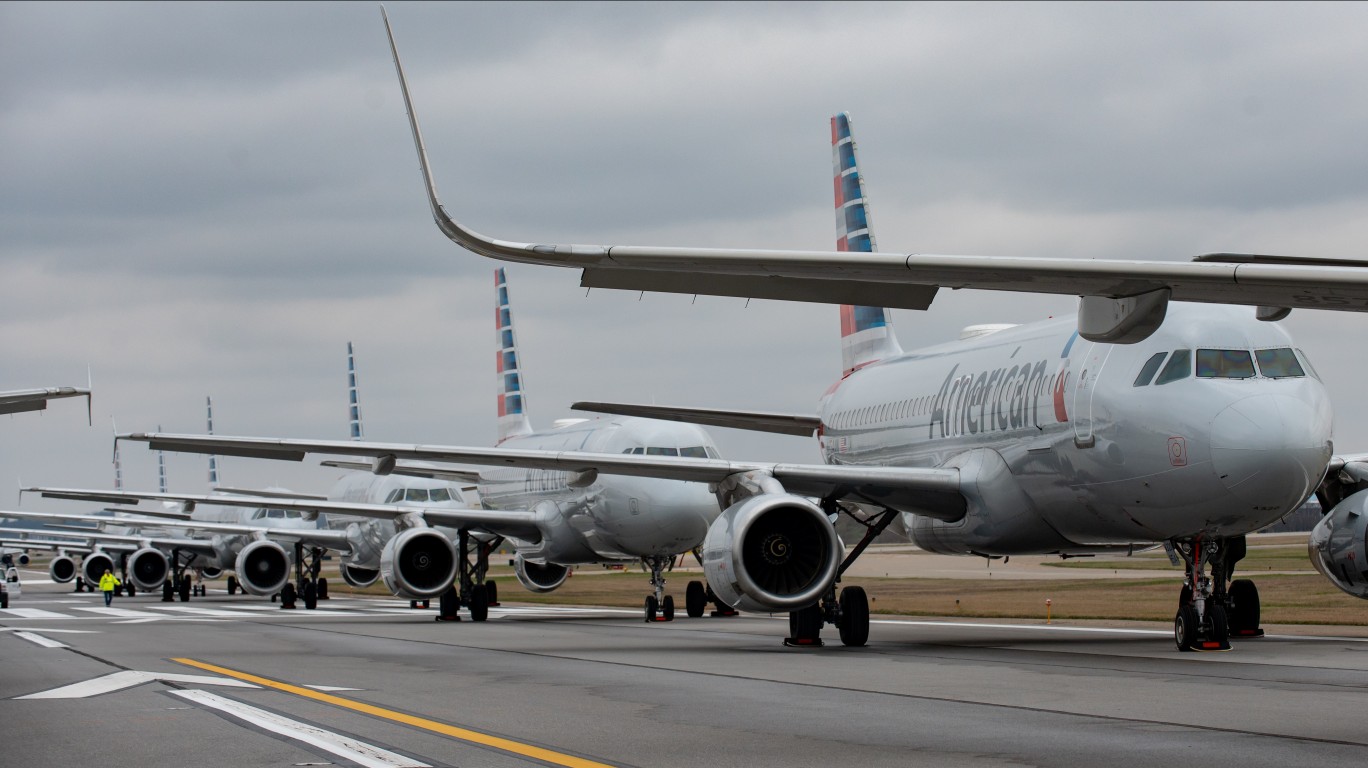
Ten U.S. air carriers have signed on the Payroll Support Program (PSP) that offered $25 billion in assistance for airlines suffering from dramatic declines in passengers. Government restrictions on international travel and stay-at-home orders from state and local governments have forced airlines to cut more than 70% of their flights, including virtually all their international flights.
U.S. Treasury Secretary Steve Mnuchin announced Tuesday that Alaska Air, Allegiant Travel, American Airlines, Delta Air Lines, Frontier Airlines, Hawaiian Holdings, JetBlue Airways, United Airlines, SkyWest and Southwest Airlines have decided to participate in the CARES Act program.
Under the terms of the PCP assistance, the Treasury Department demanded assurances that no involuntary layoffs or pay cuts be done through the end of September, along with limitations on stock buybacks and dividends until September 2021 and restrictions on executive compensation until March 2022. Larger carriers were required to accept up to 30% of PCP assistance in low-interest loans secured with warrants allowing the Treasury to purchase shares in the company for a specified period.
In a statement, American Airlines Group Inc. (NASDAQ: AAL) said it would receive a total of $5.8 billion in financial assistance, with $4.1 billion in the form of a direct grant and $1.7 billion in a low-interest loan. The airline also said it expects to apply for a U.S. Treasury loan of about $4.75 billion. American will issue warrants to the U.S. Treasury to purchase approximately 13.7 million shares of common stock at $12.51 per share. The warrants expire in five years. American will issue an additional 38 million warrants at the same price and terms to secure the $4.75 billion loan.
Delta Air Lines Co. (NYSE: DAL) has agreed on financial assistance totaling $5.4 billion in PCP funds, again to prevent involuntary layoffs or pay cuts. In a memo to employees, CEO Ed Bastien said that Delta has experienced a 95% drop in passenger traffic and canceled 80% of its scheduled flights.
Bastien said the agreement includes an unsecured 10-year low-interest loan of $1.6 billion, implying that $3.8 billion is a grant. In exchange, Delta will provide the government with warrants to acquire about 1% of Delta stock at $24.39 per share over a five-year period.
The company continues to seek employees willing to consider short- or long-term leaves of absence: “You’ll continue to receive all of your benefits, and your job will be waiting for you when you return. So please think about whether a leave is right for you and your family – it is a vital part of our effort to safeguard Delta jobs.” That plea is unlikely to produce many volunteers now that Delta has accepted PCP funds.
Southwest Airlines Co. (NYSE: LUV) said it expects funding of more than $3.2 billion, comprising $2.3 billion in direct payroll support and a loan of nearly $1 billion. The low-interest-rate loan is expected to mature in 10 years. In exchange, Southwest expects to issue 2.6 million warrants to the U.S. Treasury.
Just these three have accounted for more than $13 billion in PCP funds earmarked for U.S. carriers. Clearly not enough, and investors are wary.
American Airlines stock traded down nearly 2% at $11.72 on Wednesday, in a 52-week range of $9.09 to $34.99.
Delta Air Lines stock traded down nearly 4%, at $23.57 in a 52-week range of $19.10 to $63.44.
Southwest Airlines stock traded down nearly 6% to $32.71. The 52-week range is $29.15 to $58.83.
Credit card companies are handing out rewards and benefits to win the best customers. A good cash back card can be worth thousands of dollars a year in free money, not to mention other perks like travel, insurance, and access to fancy lounges. See our top picks for the best credit cards today. You won’t want to miss some of these offers.
Flywheel Publishing has partnered with CardRatings for our coverage of credit card products. Flywheel Publishing and CardRatings may receive a commission from card issuers.
Thank you for reading! Have some feedback for us?
Contact the 24/7 Wall St. editorial team.
